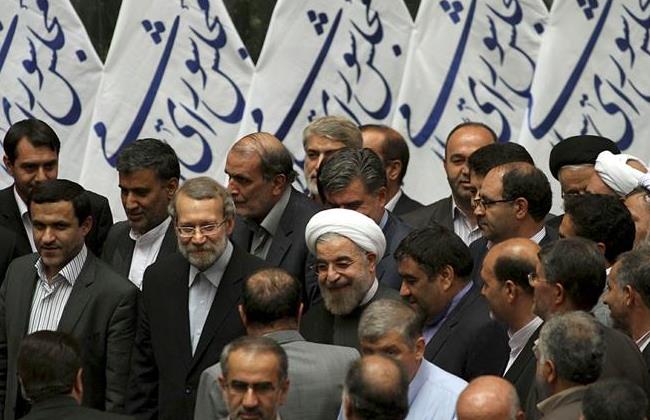
Iran said Thursday the new sanctions approved by the U.S. House of Representatives aimed at curbing Tehran’s controversial nuclear drive will only serve to complicate efforts to negotiate a solution.
The House approved the new measures on Wednesday as a means to prevent Iran gaining nuclear weapons capability, sending a signal to Tehran before its new president is sworn in in parliament on Sunday.
The measure, which overwhelmingly passed 400-20, would slap strict limits on Iran’s already heavily-sanctioned oil industry, as well as on other sectors of the country’s ailing economy, including the automobile and mining sectors.
“The only influence these sanctions have is to make finding a solution to existing issues more complicated and more difficult… especially on the issue of nuclear talks,” foreign ministry spokesman Abbas Araqchi told ISNA news agency.
“Imposing sanctions on Iran is a failed policy and will not help find a rational solution… Insisting on this policy is surprising as it will not change the Islamic republic’s stance,” he added.
Critics say the vote was badly timed, coming just days before Hassan Rouhani, a former Iranian nuclear negotiator under reformist leader Mohammad Khatami, takes over as president.
Advocates of diplomacy have suggested that the United States should use the departure of outgoing President Mahmoud Ahmadinejad as a chance to seek engagement with Iran, instead of maintaining a rigid posture.
But House Speaker John Boehner made a special plea for passage of the Nuclear Iran Prevention Act before Congress goes on its annual summer break at the end of this week.
The new legislation, should it pass the Senate and be signed by President Barack Obama, would require a further cut of one million barrels per day over the next year as a condition for exemptions, amounting to a virtual embargo on Iran’s crude exports.
Six countries — China, India, Japan, South Korea, Taiwan and Turkey — still import Iranian oil, but they have reduced their buying since 2012, with Washington granting them exemptions.
The legislation would also close a loophole in sanctions which the European Union imposed on Iran’s foreign currency reserves by punishing any institution that serves as an intermediary in facilitating currency conversions for Tehran.
Source:Agencies












